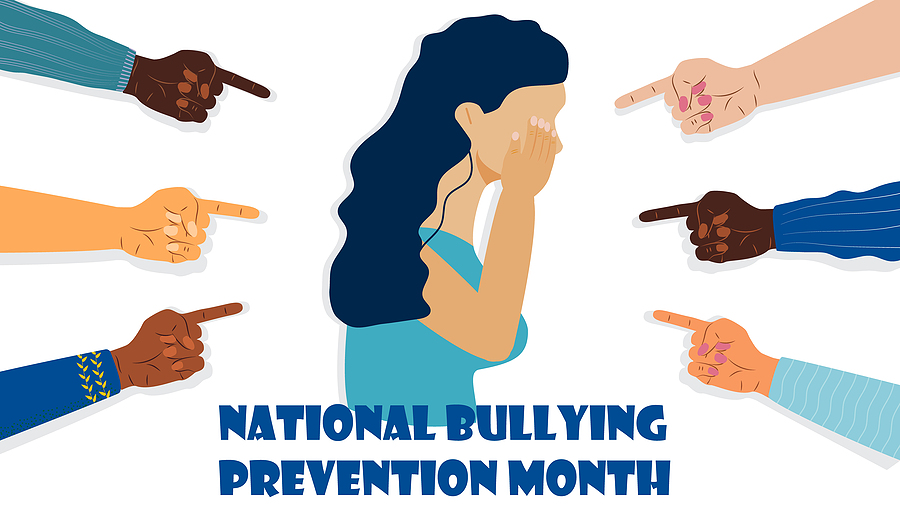
As she sat in her virtual tenth-grade geometry class, Amanda heard the teacher explain the proof, but the teacher’s voice failed to register with her. Rather, Amanda found herself preoccupied with her own chorus of thoughts: I’m so far behind in school. No one knows. No one cares. I don’t have any friends. I only disappoint my parents. I’m so alone. I don’t want to go on like this. I want the pain to end. Then, she went on to imagine what her funeral might be like.
The pandemic and all its sundry effects continue to impact the population. But the most significant impacts of the pandemic impact those in the population least able to cope with them: students, those with lower incomes, and African Americans. Among students, many struggle with depression and suicidal ideation (thoughts of suicide). According to the National Alliance on Mental Illness (NAMI), one in five students age 13-18 deals with a serious mental illness. (Here is a pdf with facts, figures, and resources you can share with your teachers, parents, and staff.)
It is important to note that having thoughts of suicide (or thoughts of one being “better off dead,” known as passive suicidal ideation) are not unusual for students, particularly students age 13-18. One study cites the prevalence of suicidal ideation among students in this demographic is roughly three times that of the overall population.
While thoughts of one’s death or making plans for suicide may not be unusual for teens, they can be dangerous. Such thoughts are important to bring into the light and deal with, without fear of shaming or stigmatization. To a student such as Amanda, living in the isolation of her mind and rehearsing these thoughts over and over again with no outside voices to weigh in can lead to preoccupation with death, and rationalization that taking her life is the only logical course open to her. Helping struggling students come out of the darkness of their self-imposed isolation and talk with someone else is critical to breaking that cycle.
Most schools don’t do a good job of helping students break that cycle. Christian schools, particularly Christian schools serving less affluent populations may not talk about it at all. But though not many Christian schools may talk about mental health struggles openly, the data show that Christians experience mental health struggles just as much as those in the non-believing community. What can you do to recognize signs of mental health struggle among your students?
Any of the following behaviors or behavioral changes might indicate the presence of struggle in a student:
- Unexplained or frequent absences from class, particularly a pattern of absences
- Lack of participation in class, or in social activities, or a lack of attentiveness (distraction)
- A change in physical appearance, particularly a sudden change
- A lasting change in mood (sad, angry, antagonistic, detached, disinterested)
- Unusual crying
- A drop in grades and/or a pattern of turning in assignments late, incomplete, or carelessly-completed
- Self-deprecating remarks or humor
- Self-harming behavior
- Sudden change in eating habits (weight loss or weight gain)
- Regularly drawing or doodling images that reflect emptiness, isolation, hopelessness, or death
- A verbal admission of feeling depressed or hopeless
What can Christian educators do to help students who might be struggling with mental health issues?
- Talk openly about the reality of mental health struggles, and the facts that they’re not unusual, or anything to be ashamed of. Mental health struggles are no different from other physiological illnesses. Would you be ashamed if you had a cold? Depression, anxiety, and other mental health issues are no different. Conditions can be treated, symptoms can be improved, and people can recover.
- Acknowledge that Christians struggle with feeling hopeless, depression, and thoughts of self-harm. The Apostle Paul reports being “so utterly burdened beyond our strength that we despaired of life itself” in 2 Corinthians 1:8. Many Christians struggle with similar feelings today.
- Talk about Christians needing the help of one another (and the Lord!) to navigate the troubles of life. We weren’t created to walk the Christian life in isolation. God tells us in his Word that we need one another in the Body of Christ for support, encouragement, prayer, other practical help, and accountability (see Hebrews 3:12-13). The tendency for everyone who struggles with sin or shame to struggle secretly. Encourage them to come into the openness of community, and find God’s grace sufficient for the ways in which they struggle.
- Personally pursue students. Spend time checking in one-on-one with students, getting to know them and their struggles. Pray for the insight and discernment to know how to help them. Pray that the Holy Spirit would bring any hidden struggles into the light.
- Privately engage students in whom you notice red flags. Schedule a time to speak with those students offline—ideally, in person. If that’s not an option, engage them over Zoom or Google Classroom…but make time to talk with them. Let your student know that he/she is noticed, loved, and important to you, and to the Lord.
- When you talk with your student, don’t try to be a counselor. If you’re like most teachers, you don’t have a counseling background. You don’t need to act as though you have one! Talk with your student. Acknowledge the signs you’ve observed in them. Ask them how they’re doing. Listen attentively and actively to what they share. Empathize with them, letting them know they’re not unusual or hopeless. Walk with them to Christ, as the One who perfectly understands them and is with them in the midst of their struggles.
- If you suspect your student struggles with suicidal ideation, ask your student if they have had thoughts of harming themselves, or of committing suicide. If they respond that they have, ask if they have a plan for how they might carry it out. Then, ask them if they plan to act on those desires. If your student says that he or she is considering acting on their plan, offer to take them to the emergency room right away, or call 911 for them. Stay with them or stay on the call with your student until help arrives. If your student says that he or she is thinking about hurting themselves but won’t act on those thoughts right now, encourage them to speak to a counselor immediately. Notify your supervisor at the school, and contact the student’s parent or guardian immediately to share what you’ve heard. Don’t hold that conversation in confidence. The most important thing right now is to help that student find access to other caring voices who can speak into his or her darkness and provide a different perspective.
Here are some additional resources you can turn to for more information on helping students deal with depression or thoughts of self-harm:
- Christian Counseling and Education Foundation (CCEF) Counselor Julie Lowe’s two-part article about hope for discouraged or depressed students
- A short CCEF book for purchase: Suicide: Understanding and Intervening
- A CCEF virtual seminar on Wednesday, February 10, 2021 led by Julie Lowe on talking with teens about bullying and suicide
- An online brochure from the National Institute for Mental Health on Teen Depression, for students, parents, and teachers
- A concise list of depression-related diagnostic questions and resources for parents and teachers of teens
- A link to the National Suicide Prevention Helpline
- The National Alliance on Mental Illness page for teens and young adults about how to recognize you might need help, and how to care for someone else who is struggling
Most of all, as a follower of Christ, you have the power to pray for the student in your care. Whether your student is a learner in your class, your child, or a friend, you can intercede before the Throne of God on that student’s behalf. And you can incarnate the love and wisdom of God by being physically and emotionally present with that student as he or she navigates these sometimes dark roads.

Tim Geiger (M.Div.) is Executive Director of Children's Jubilee Fund. Born and raised in Philadelphia, Tim has lived in or around the city most of his life. His undergraduate studies done at the Community College of Philadelphia, Tim went on to earn a Master of Divinity Degree from Westminster Theological Seminary. He is ordained as a Teaching Elder in the Presbyterian Church in America. Prior to serving at Children's Jubilee Fund, Tim worked for the Internal Revenue Service, The Alliance of Confessing Evangelicals, and Harvest USA, where he also served as Executive Director and then President from 2012-2019. Tim lives with his wife and daughter just outside of Philadelphia.

Children's Jubilee Fund is a 501(c)(3) organization established in 1997 to provide tuition grants to Christian schools in the Philadelphia metro area that serve lower-income students. These grants are then awarded by the schools as scholarships to students who meet income and residency guidelines. Each year, Jubilee provides hundreds of thousands of dollars in grants that, in turn, help hundreds of students in Philadelphia, Delaware, Montgomery, and Camden Counties achieve their God-given academic and personal potential. Children's Jubilee Fund is an entirely donor-supported organization.

